The Lebanese poet Nizar Qabbani (1923-1998) described his beloved country and city, saying: “I am Beirut / The queen of water who lost her rings, bracelets, necklaces in the water / I am the pearl of the Mediterranean sea who has fallen under/ I am the blue fish of the mythology, poisoned with mercury / I am the ship that the cursed, demons, pirates, sailors chase to plunder and strangle its treasures,”.
Beirut was once a city of tourism, culture, education and entertainment in the Middle East, until it was devastated by years of civil war resulting in endless bloodshed, violence and death. Just as it began to heal its wounds, a tragic explosion in the city resulted in hundreds of deaths and renewed political instability.
Beirut was once one of the most important centers of arts in the Arab world, especially when it came to literature and for cinema. The city produced a number of very important artists before the war tore the city apart.
Cinema, the youngest of the arts, has often shed light on Lebanon and Beirut, reflecting the realities of the country and of the city on film screens from a variety of different perspectives.
Here are 15 films that shed light on the Lebanese civil war, the Israeli occupation and the realities of Beirut:
G’mar Gavia-Cup Final (1991)
The film takes place at the beginning of the Israeli occupation of Lebanon in 1982 in the context of a bloody civil war between the Palestine Liberation Organization, Christians and Druzes that had been going on for many years. Israeli Army Sergeant Cohen is preparing to go to Spain for the world cup when he is drafted to the army. Cohen, who is captured by the PLO alongside an IDF officer, is relocated to Beirut. Fortunately, the clashes mysteriously stop for a short time when the football matches are broadcasted. Israeli director Eran Riklis conveys the story of the Sergeant’s captivity over a period of seven days in a humorous and satirical way, conveying the message that wars often happen between people that might otherwise have friendly conversations with each other.
Riklis’s 2012 film “Zaytoun” returned to the topic of the Israeli-Lebanese war, telling the story of the events from the perspective of an Israeli fighter pilot named Yoni whose jet is shot down, landing him in a refugee camp in Beirut.
Hors la vie-Out of Life (1991)
Maroun Bagdadi, one of the most important representatives of Lebanese cinema thanks to his masterful documentaries and fictional films, here reflects the experiences of Patrick Perrault, a French newspaper photographer who was captured in Beirut. Perrault, who is in Lebanon to cover the civil war, showcases the perspective of a Westerner unfamiliar with the conflict and incapable of understanding the situation throughout the film. After being taken hostage, his life is subjected to the long and cruel darkness of war. Bagdadi reflects how his country was caught up in a cascade of violence using this true story of a French radio reporter’s captivity.
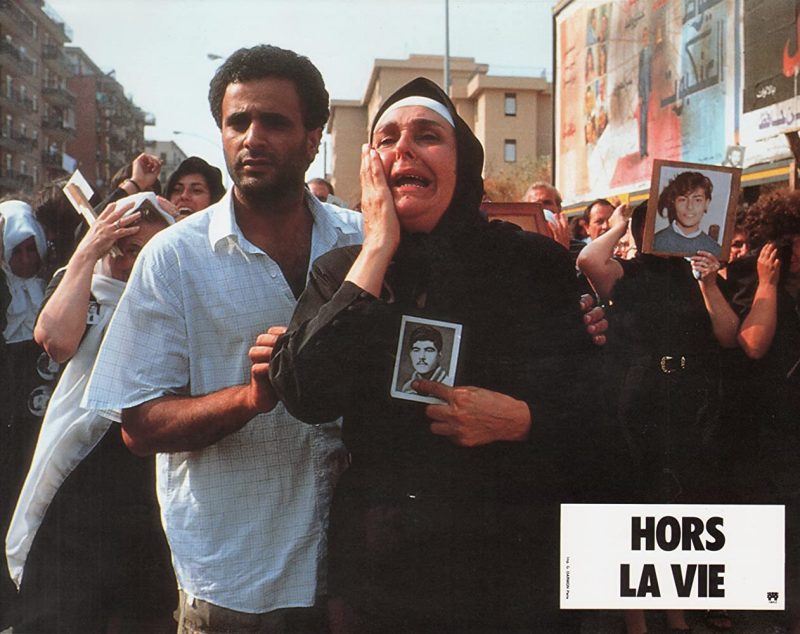
West Beyrouth – West Beirut (1998)
Quentin Tarantino’s cameraman Ziad Doueiri gives the lead role to his brother Rami Doueiri in “West Beirut”, a film which takes place at the time of the civil war between Christians and Muslims in 1975 shown from the eyes of young children.The film has received many awards at various international festivals. In the film, a bus carrying Palestinians is attacked, the passengers are murdered, and West Beirut falls into hands of the Christians in the rapidly escalating war.
The film is a story of innocence and the experiences of youth in the midst of terror, and stands out as a warm, friendly, realistic and political work. “West Beirut”puts Beirut in a special place in the relationship between the city and cinema.
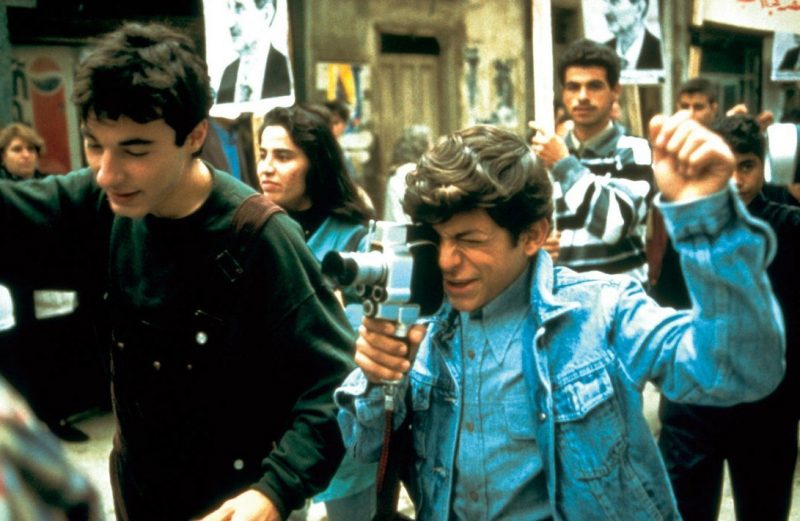
Maarek Hob – In the Battlefields (2004)
This film, directed by Danielle Arbid, is the story of the civil war in Beirut and the downfall of a family through the perspective of a young girl going through puberty. “In the Battlefields”, takes the audience back to Beirut in 1983, focusing on a 12-year-old girl named Lina. The narrator explains that “the war begins at the household, then it spreads around the whole country”, before narrative time accelerates with images of violence in an unstable country. The Lebanese-French-Belgian co-production “In the Battlefields”, emphasizes the inevitability of the young girl getting drawn into the adult world where violence has become part of daily life. The film won a major award at the Paris Biennale of Arab Cinema.
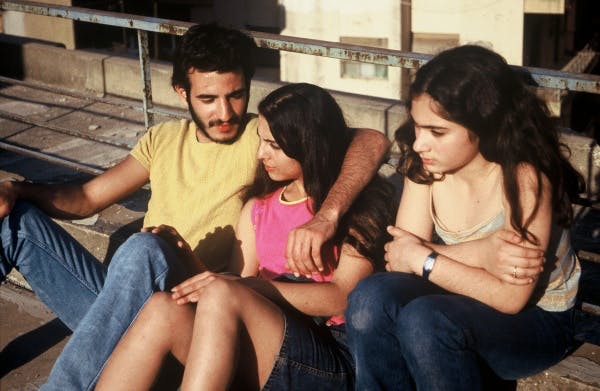
A Perfect Day (2005)
“A Perfect Day,” directed by the Beirut-born directors Joana Hadjithomas and Khalil Joreige, depicts the trauma of the Lebanese Civil War that threatens to reappear again, showing a day in the life of a mother and her son. Joreige claims that his uncle was one of 17,000 people who disappeared during the civil war: “These people left their homes one morning, then never came back. Where are these people? The city of Beirut is undergoing a broad process of reconstruction, but nothing or no one has been found yet. The film questions whether we have all given up on those who were lost and their souls, and those who are no longer able to see, hear or feel.”
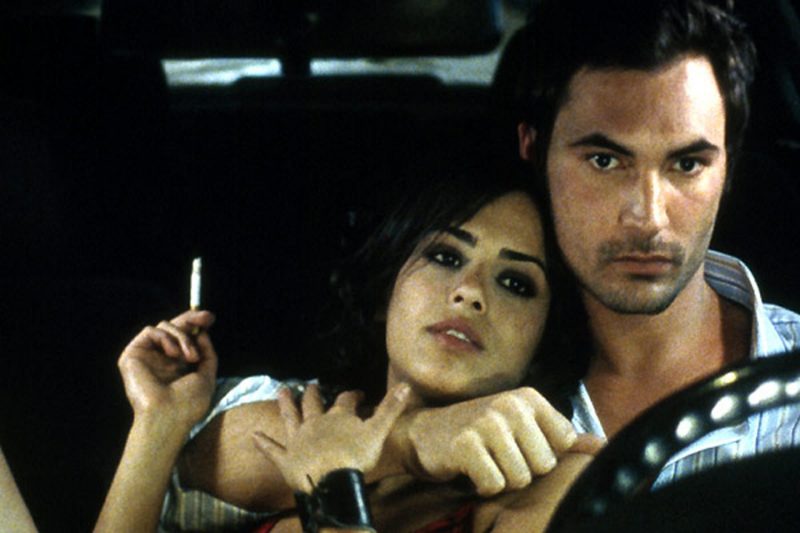
Falafel (2006)
“Falafel” was filmed shortly before Israel attacked Lebanon in 2006, and projects the message that the terror, instability and insecurity that was created during the 1975-1990 civil war has not yet disappeared despite how many years have passed. The film, which takes place over the course of a single night, depicts a party where a young man in his 20s named Toufik goes for a fun night with his Dutch girlfriend before things spiral out of control. After the young man is threatened with guns, he prepares to get his revenge after thinking about a story he heard at a falafel snack bar he visited before the party. The film is written and directed by Michel Kammoun.
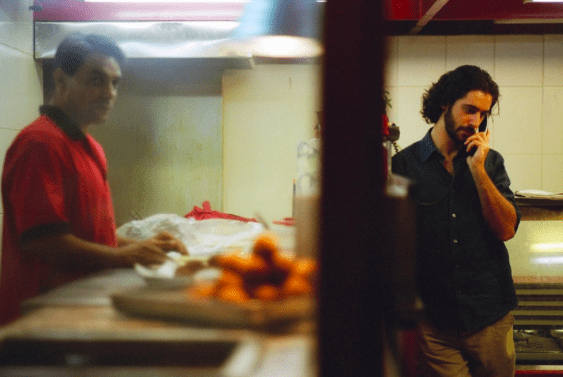
Vals Im Bashir – Waltz with Bashir (2008)
Israeli director Ari Folman’s film shows the creative potential of animated cinema in a story based on the Israeli-Lebanese war in 1982 and the massacres in the Palestinian camps Sabra and Shatila. Folman had been in Lebanon as a soldier for the Israeli Army in 1982, and with this movie he expresses his true feelings regarding the Israeli people’s ignorance regarding what happened in these camps. “Vals Im Bashir”, begins with a nightmare and moves on with flashbacks about what happened. It is an unforgettable film that sheds light on Lebanon’s recent past with a script strongly connected to present day realities.
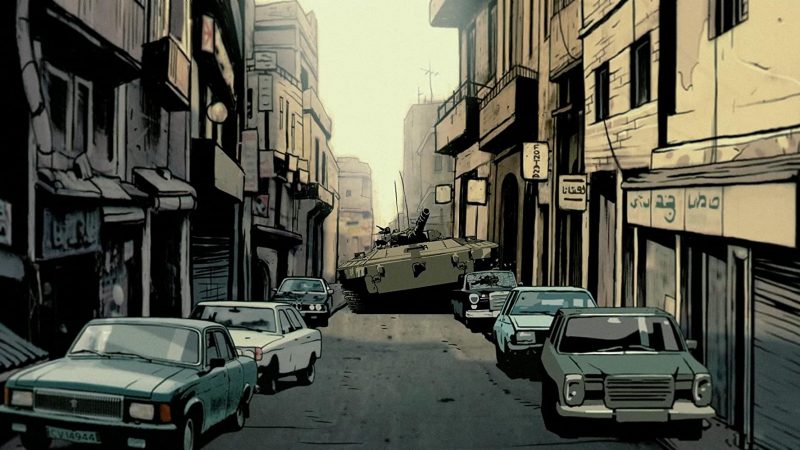
Lebanon (2009)
Lebanon is an autobiographical Israeli film based on director Samuel Maoz facing his past and conscience. The film, which takes place during Israel’s first invasion of Lebanon in June 1982, tells the story of a claustrophobic soldier named Shmulik, who is on duty in enemy territory inside a tank with three crew members he had never met before. The film shows how these four soldiers who never seen violence before gradually become brutal killing machines in a harsh and realistic way, mainly focusing on what fear and survival instinct can bring man to do. Maoz said regarding the film: “When I came back from the war, my mother hugged me, burst into tears and thanked God and everyone who brought me home safely. But she did not realize that I did not come home safely, and I did not even come home at all. She did not realize I was dead in Lebanon. I was only able to come back home when I made this movie.”
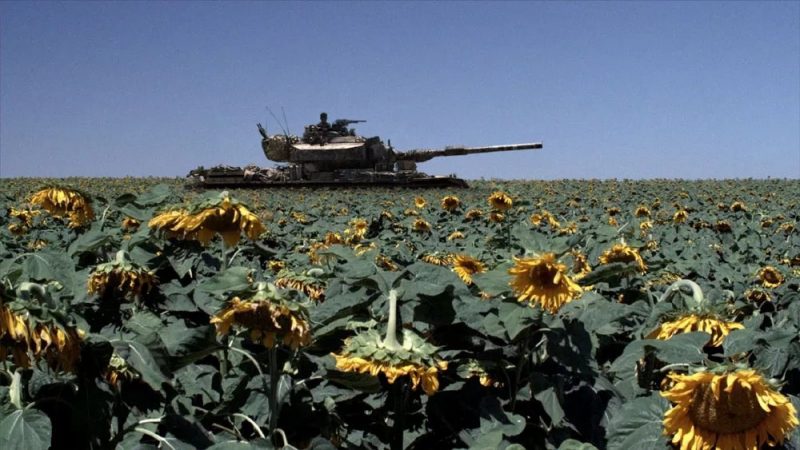
Chaque jour est une fête – Everyday is a Holiday (2009)
A bus full of women travels through the arid and barren lands of Lebanon. The women, who are on a trip to see their husbands, sons and brothers working in a prison, are suddenly stopped when sniper fire hits their driver, leaving the passengers with no idea what to do next. One of the women, whose husband is a guard at the prison, has brought a gun with her that her husband left at home.
“Chaque jour est une fête” is Dima El-Horr’s first film. It stands out for its visual success and is a marvelous example of the Lebanese postwar cinema. It is a bold fantasy that reflects the unsettling atmosphere in Lebanon with impressive cinematic language.
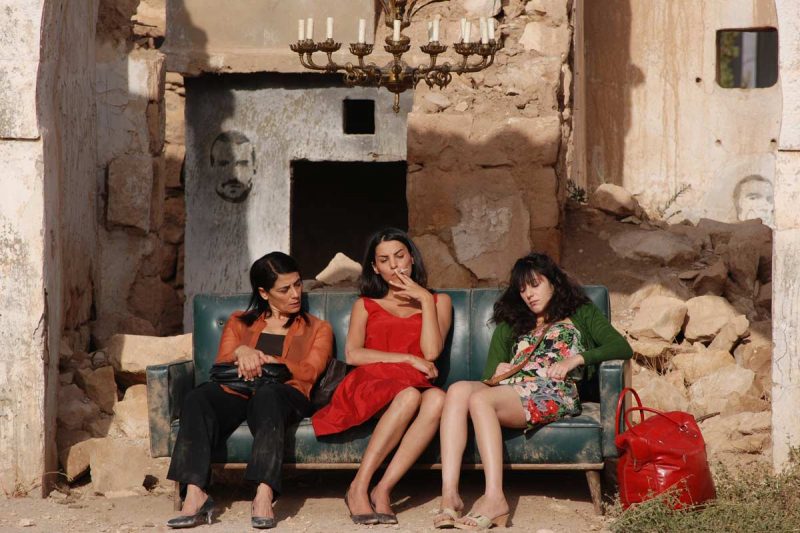
1958 (2010)
Director Ghassan Salhab focuses on the fate of his country in his fourth film 1958. His previous films were “Phantom Beirut” (1998) a movie about the war-weary people of Lebanon, “Terra Incognita” (2002) which looks at the rebuilding of the nation after the war, and “The Last Man” a vampire story set in Beirut. The year of 1958 which gave the movie its name was both the year when the director was born and the year that civil conflict began in Lebanon, which later turned into the civil war. Salhab focuses on concepts such as homeland, exile, migration, abandonment, colonization, and language barriers with his mother as the main character. The movie conveys an interesting “confrontation” with Beirut connected with the director’s personal history and the history of the city itself.
Incendies (2010)
Canadian-French co-production “Incendies” tells the story of two brothers who set off from Canada to Lebanon to fulfill their mother’s last wish, and journey through the scars of the war and violent memories of the 1970s while discovering horrifying truths. Denis Villeneuve shows the consequences of the civil war in a poetic language and puts a strong emphasis on women and children who pay the biggest price of the conflict. He also draws attention to the limitlessness of hatred and the resistance of human nature, constructing a narrative that shakes the audience without making any big conclusions about the “fate” of Lebanon and the Middle East.
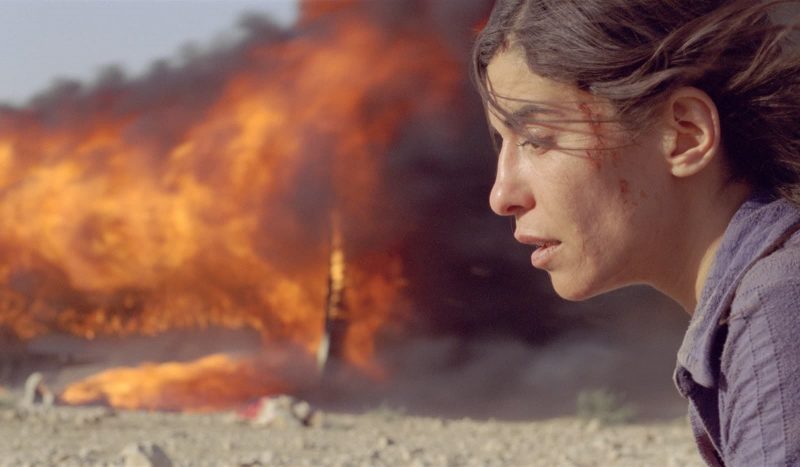
Alam Laysa Lana – A World Not Ours (2012)
Fleifel’s documentary shows the 20 years of a family via video recordings and photographs, giving an intimate and humorous glance at the Palestinians who have lived in exile for three generations at the Ain al-Hilweh refugee camp in Southern Lebanon. Fleife, who says his goal is not to put up a “family tree” but to preserve the memory of those who might otherwise be forgotten: “If the Palestinians are forgotten, they will perish. Our struggle is to tell their stories throughout history and up to the present day!”
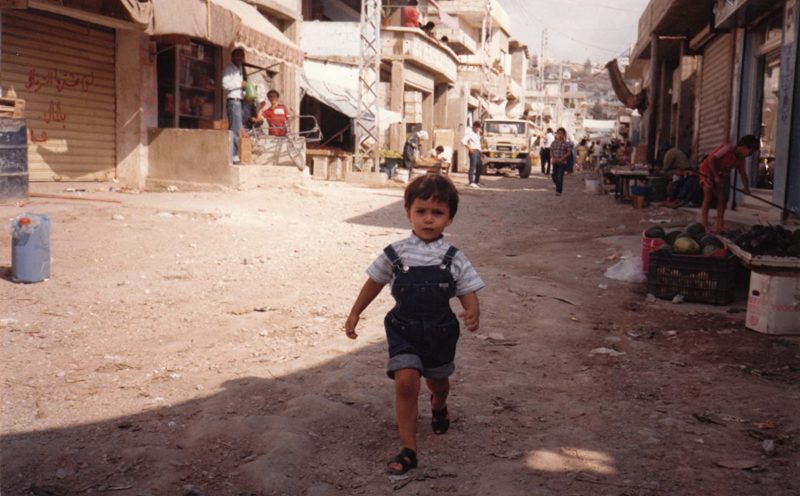
L’insulte – The Insult (2017)
In this movie, director Ziad Doueiri sheds light on the daily emotional origins of the problems and conflicts in the Middle East, rather than looking at political causes. Doueiri takes a look at the darker areas of the Lebanese history based on an everyday relationship between a Christian named Tony who lives in Beirut and a Palestinian municipal official called Yasser. The dispute turns into a fight first and turns into a dispute, gaining the public opinion’s attention. The film depicts the spiritually divided Lebanese people, their mutual prejudices and intolerance, and focuses on the difficulties of emotional integration and peaceful coexistence rather than getting wrapped up in trying to prove who is right and who is wrong.
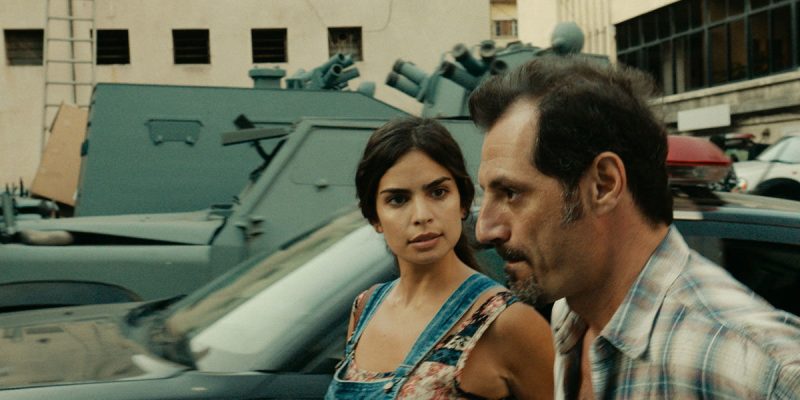
Beirut (2018)
Directed by Brad Anderson, Beirut tells the story of several CIA agents who were caught in the crossfire during the 1980s Lebanese civil war, and a former US diplomat who knows the region well who attempts to save his friends trapped in the region. While the movie is laden with typical Hollywood clichés, it also seeks to look at everyday Lebanese truths, from the adoption of a Palestinian child, to the attack and hostage crisis the 1972 Munich Olympics, all built within the framework of a traditional “back to duty” narrrative.

Capernaum (2018)
In addition to her acting career, the Beirut-born director Nadine Labaki (who also directed the 2007 film “Caramel”) is the first Arab female director to be nominated for an Oscar. Capernaum opens with the trial of a child who is suing his parents for giving birth to him.
The story develops in the setting of Beirut’s poorest neighborhoods, showcasing the misery of these areas, a girl forced to marry at a young age, attempts to run away from home, and taking custody of a baby from an Ethiopian immigrant sex worker.
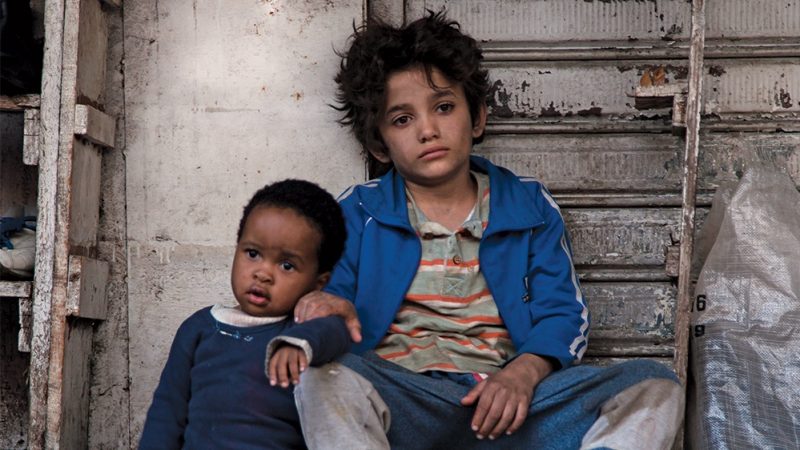


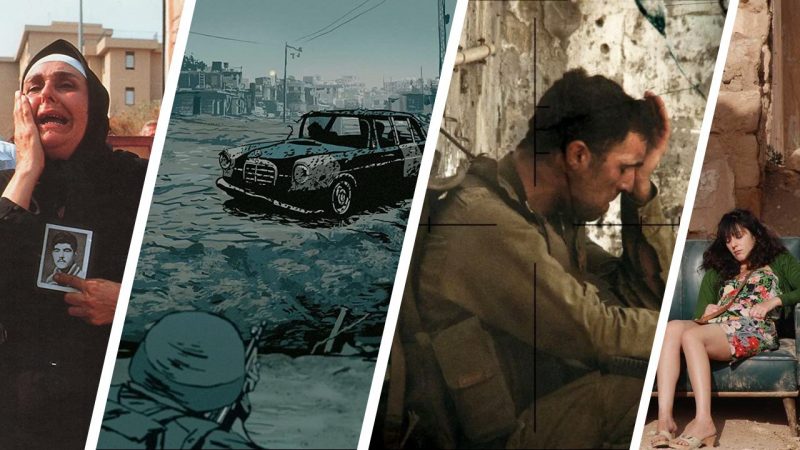
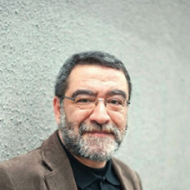





Leave a Reply